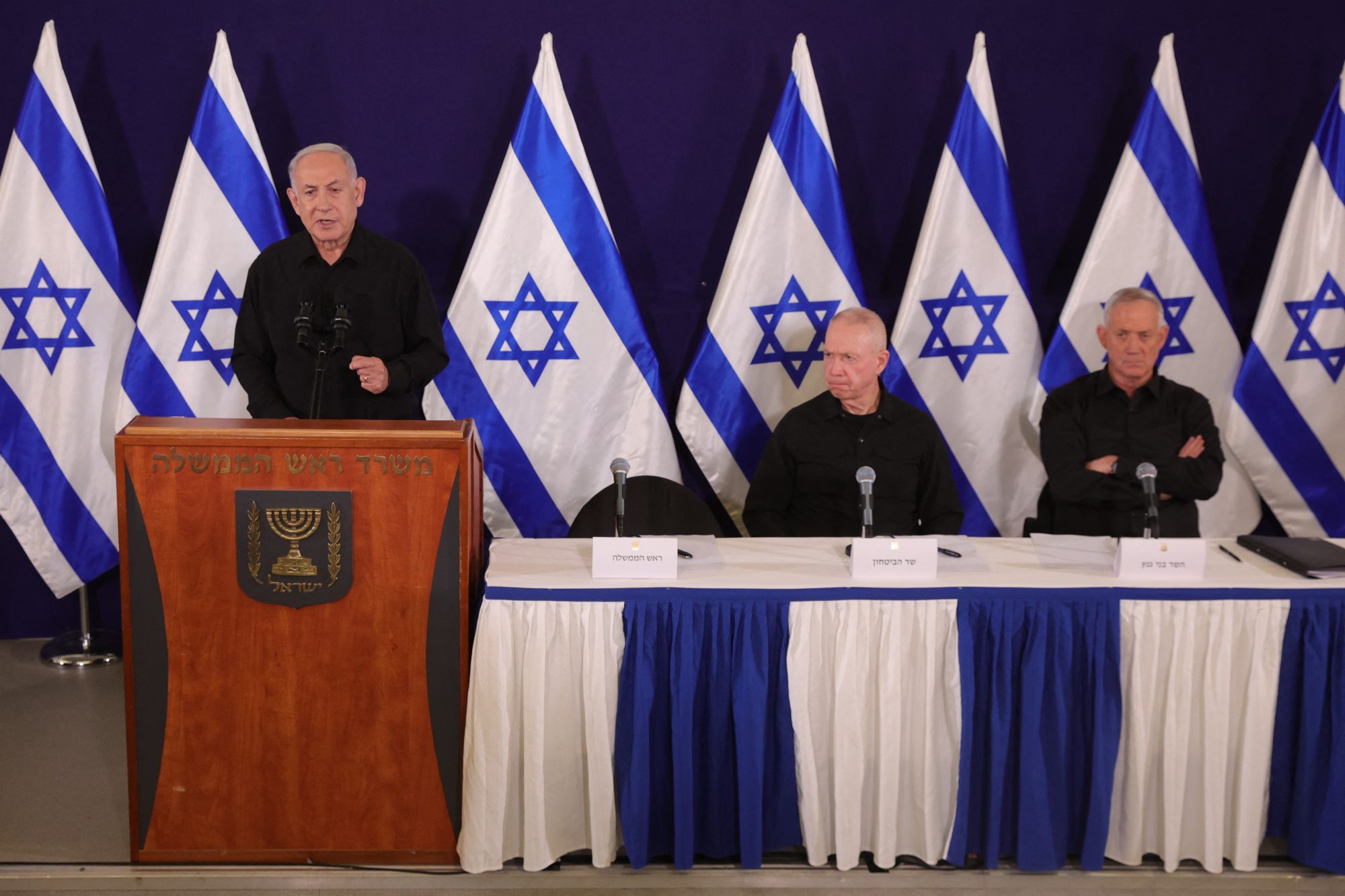Divided we stand: Israeli leadership clashes over Gaza’s future – Dailynewsegypt


Israeli Prime Minister Benjamin Netanyahu faces escalating pressure to articulate a post-war strategy for Gaza, as political rivals criticize his perceived indecision and the US warns of a power vacuum in the devastated Palestinian territory.
Israeli Defence Minister Yoav Gallant and former military chief Benny Gantz have publicly urged Netanyahu to establish a Palestinian governing body as an alternative to Hamas, arguing that failure to do so could necessitate a risky Israeli occupation of Gaza. Netanyahu has retorted that the priority should be eliminating remaining Hamas fighters in Rafah.
The escalating tensions have exposed divisions within Netanyahu’s wartime government, with Gallant and Gantz suggesting that the prime minister is prioritizing political survival over national security. They demand that Netanyahu choose between leaving Gaza under Israeli military control or establishing a Palestinian alternative to Hamas with international support.
Netanyahu responded by asserting that the immediate focus of the Israel Defence Forces (IDF) should be on eliminating the remnants of Hamas in Rafah, a city in southern Gaza.
On the ground, Hamas is regrouping in parts of Gaza, prompting the Israel forces to redeploy troops to areas such as the Jabaliya refugee camp in the north, previously declared clear of Hamas fighters months ago.
This tactic has drawn criticism, including from former U.S. General David Petraeus, for not maintaining a troop presence to secure cleared areas.
From March to April 2024, the IDF demobilised nearly all the 300,000 reserve soldiers called up in late 2023. At the height of the Israeli counteroffensive in December, around 28 IDF brigades were operating in Gaza. By the end of April, only two or three conscript brigades remained active. However, with the recent escalation in fighting, three IDF divisional task forces, each comprising several brigades, have returned to Gaza: one at Jabaliya and two around Rafah. The primary challenge for the IDF is the re-emergence of Hamas squads in areas previously “cleared” by the army, particularly around Gaza City.
Internationally, tensions have risen between Israel and the US, and between Israel and Egypt. American officials, including President Joe Biden, have cautioned against an invasion of Rafah without adequate humanitarian provisions. The US has suspended a shipment of bombs to Israel and threatened a wider arms embargo if Israel proceeds with its plans to conquer the city without ensuring the protection and sustained humanitarian aid for its residents and the over one million refugees who have fled from northern Gaza.
This announcement signifies a significant shift in US policy, influenced by pressure from the progressive wing of the Democratic Party and student protests across American and European universities.
Netanyahu’s Political Considerations
Netanyahu’s reluctance to empower the Palestinian Authority and the Palestine Liberation Organization (PLO) stems from his opposition to a Palestinian state, which he perceives as a threat to Israel’s existence. Such a move would likely necessitate Israeli withdrawal from the West Bank and the dismantling of illegal settlements, alienating his right-wing coalition partners.
The West Bank settlers, numbering between 500,000 and 700,000 depending on the inclusion of some Jerusalem suburbs, are a core base for Netanyahu’s right-wing coalition partners. Promoting Palestinian statehood would likely lead these partners to exit the coalition, resulting in the collapse of Netanyahu’s government and triggering general elections. According to current opinion polls, these elections could result in Netanyahu’s ouster and possible conviction on bribery and fraud charges, potentially leading to his imprisonment.
Many Israelis believe Netanyahu is prolonging the Gaza conflict to maintain power, with the war’s conclusion potentially triggering elections. His actions, they argue, are motivated by personal political survival rather than the national interest.






